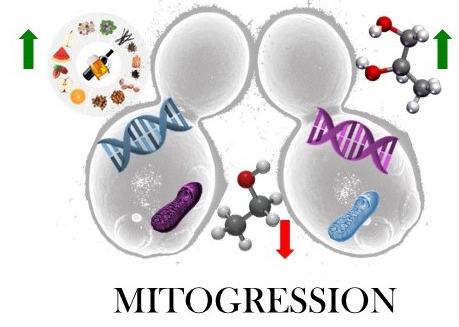Authors: David Peris, William G. Alexander, Kaitlin J. Fisher, Ryan V. Moriarty, Mira G. Basuino, Emily J. Ubbelohde, Russell L. Wrobel, Chris Todd Hittinger
Journal: Nature Communications 11:2085
Year: 2020
Abstract: Allopolyploidy generates diversity by increasing the number of copies and sources of chromosomes. Many of the best-known evolutionary radiations, crops, and industrial organisms are ancient or recent allopolyploids. Allopolyploidy promotes differentiation and facilitates adaptation to new environments, but the tools to test its limits are lacking. Here we develop an iterative method of Hybrid Production (iHyPr) to combine the genomes of multiple budding yeast species, generating Saccharomyces allopolyploids of at least six species. When making synthetic hybrids, chromosomal instability and cell size increase dramatically as additional copies of the genome are added. The six-species hybrids initially grow slowly, but they rapidly regain fitness and adapt, even as they retain traits from multiple species. These new synthetic yeast hybrids and the iHyPr method have potential applications for the study of polyploidy, genome stability, chromosome segregation, and bioenergy.
This repository, linked to the SynHybrids Github Page, contains all raw data used to generate Figures and Tables in this publication.
Nature Research Bioengineering Community blog entry

